Middle East & North Africa
2010

Technicalities: 10 Questions on WikiLeaks
Monday’s release of graphic video footage of an attack by the U.S. military on two Reuters journalists vividly depicted the dangers involved in covering a battlefield. It also thrust into the spotlight WikiLeaks, the enigmatic Web site responsible for obtaining, decoding, and publicizing the footage. Here’s 10 questions answered on WikiLeaks, including how it works, its goals, and some…
Gag order lifted in Israeli military leaks case
The Committee to Protect Journalists issued the following statement after learning that a months-long gag order was lifted today. The gag order prevented Israeli media from reporting on the case of a soldier charged with “harming national security” who is under house arrest for leaking documents that allegedly show that the military violated an Israeli…
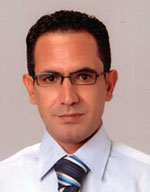
CPJ urges Egypt to free blogger with 18 release orders
Dear Minister el-Adly: The Committee to Protect Journalists is writing to protest the continued detention of Mosad Soleiman, known online as Mosad Abu Fagr, a blogger, novelist, and activist who writes about social and political issues on his blog, Wedna N`ish (We Want to Live). Abu Fagr has been in administrative detention by order of the Ministry of Interior since February 2008, despite obtaining 18 court orders for his release, his lawyer, Ahmed Ragheb, told CPJ.
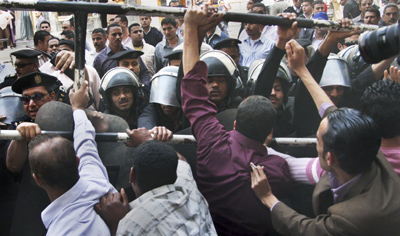
In Egypt, journalists attacked while covering protests
New York, April 7, 2010—Uniform and plainclothes Egyptian security forces assaulted and obstructed journalists trying to cover protests in Cairo on Tuesday, according to news accounts and interviews. The Committee to Protect Journalists condemns the actions and calls for authorities to stop harassing journalists reporting from the scene of news events.

A distorted picture from Iraq
The Iraqi government is keeping photographers away from scenes of suicide attacks, according to a piece published today by Stephen Farrell on The New York Times’ “At War” blog. CPJ has objected to government regulations promulgated in May 2007 barring photographers from the scene of such bombings for an hour after they take place.
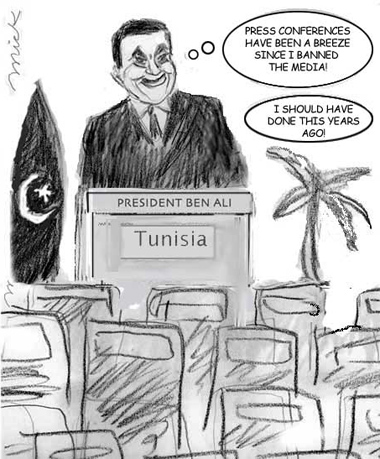
A perfect press conference in Tunisia
The government of President Zine El Abidine Ben Ali has made it clear there is little room for a critical press in Tunisia. Taking a cue from the government’s recent anti-press actions, CPJ cartoonist Mick Stern imagines the president’s “ideal” press conference. See more Mick Stern cartoons.
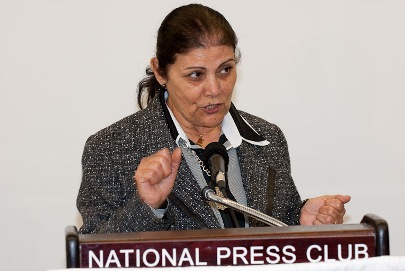
More than 3,500 petition Iran to free journalists, writers
New York, April 6, 2010—More than 3,500 concerned people from around the world—including prominent international journalists, writers, and press freedom leaders—are petitioning Iran’s Supreme Leader, Ayatollah Sayed Ali Khamenei, to immediately release dozens of journalists, writers, and bloggers currently imprisoned in the country. Among those who have signed the petition are Martin Amis, Jon Lee…
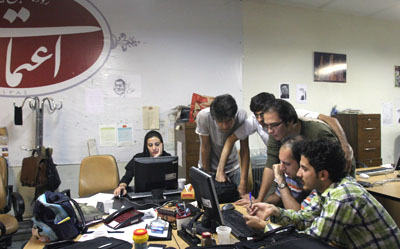
Furloughs lower Iran prison count, but dozens still jailed
New York, April 6, 2010—At least 35 journalists were imprisoned in Iran as of April 1 as authorities continued their nearly year-long crackdown on the news media, according to CPJ’s latest monthly census. Another 18 journalists were free on short-term furloughs granted for the Iranian New Year and were expected to report back to prison.
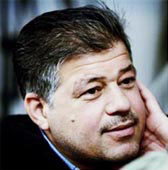
Video shows U.S. attack that killed Reuters staffers in Iraq
New York, April 5, 2010—Disturbing video footage showing a 2007 U.S. military airstrike that killed about a dozen Iraqis in eastern Baghdad, including a Reuters cameraman and assistant, was released today by WikiLeaks, a Web site that publishes sensitive leaked documents. The video raises questions about the actions of U.S. military forces and the thoroughness…